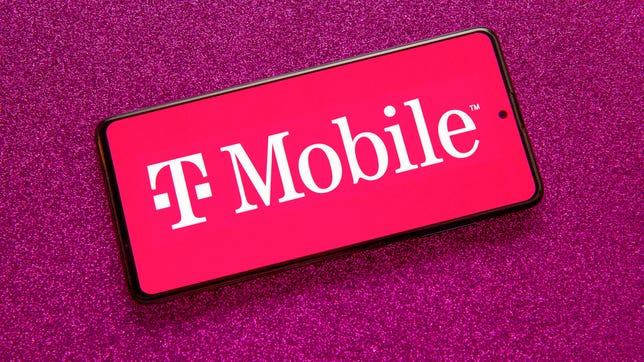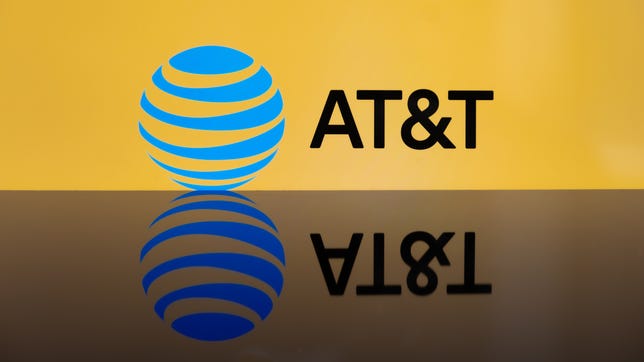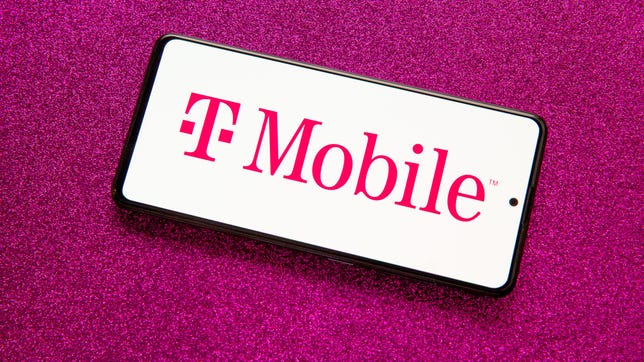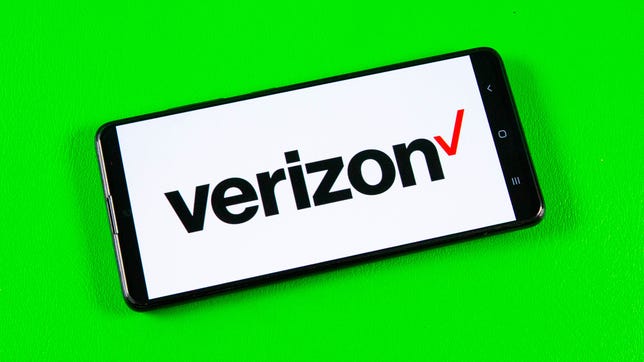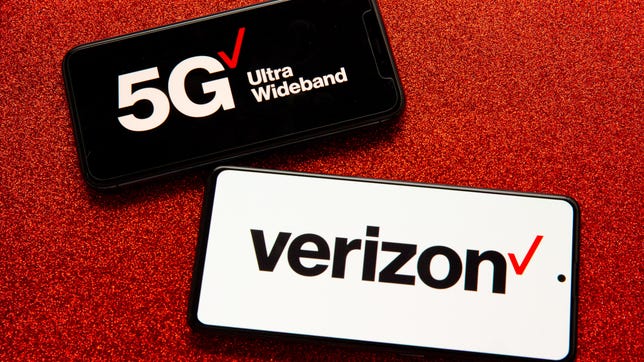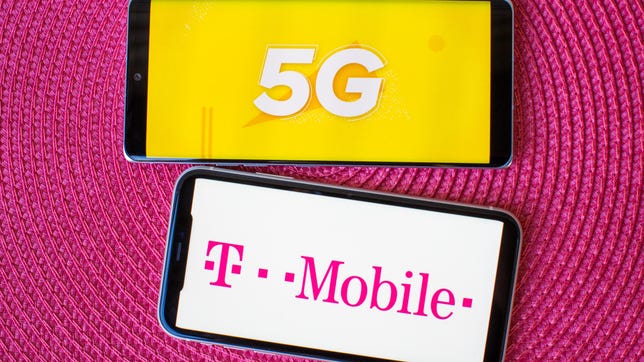In this article:
- Know your area
- Know your deals and discounts
- Our picks
- More about unlimited data plans and perks
- Unlimited data plans FAQs
It doesn’t matter if you’re an Apple purist or a lifelong Android user — to get the most out of your device you’ll need a good unlimited data plan. Unfortunately, when it comes to finding the overall best unlimited plan, things can be a bit challenging. Unlike with home internet service, where your options are often limited by your location, most people living in the US have their pick of all the major competitors and carriers. And with so many different options, it can be tricky to tell which ones are truly a good value — especially since carriers love to make bold claims about performance and coverage at different prices.
To help you narrow down the best unlimited data plans that are out there, I’m going to focus on the three major carriers — Verizon, T-Mobile and AT&T — combing through the multiple postpaid unlimited plans available to find the ones that provide the most perks and value for single lines and for families of four, so that you can find the best plan type for you at an affordable price on your budget.
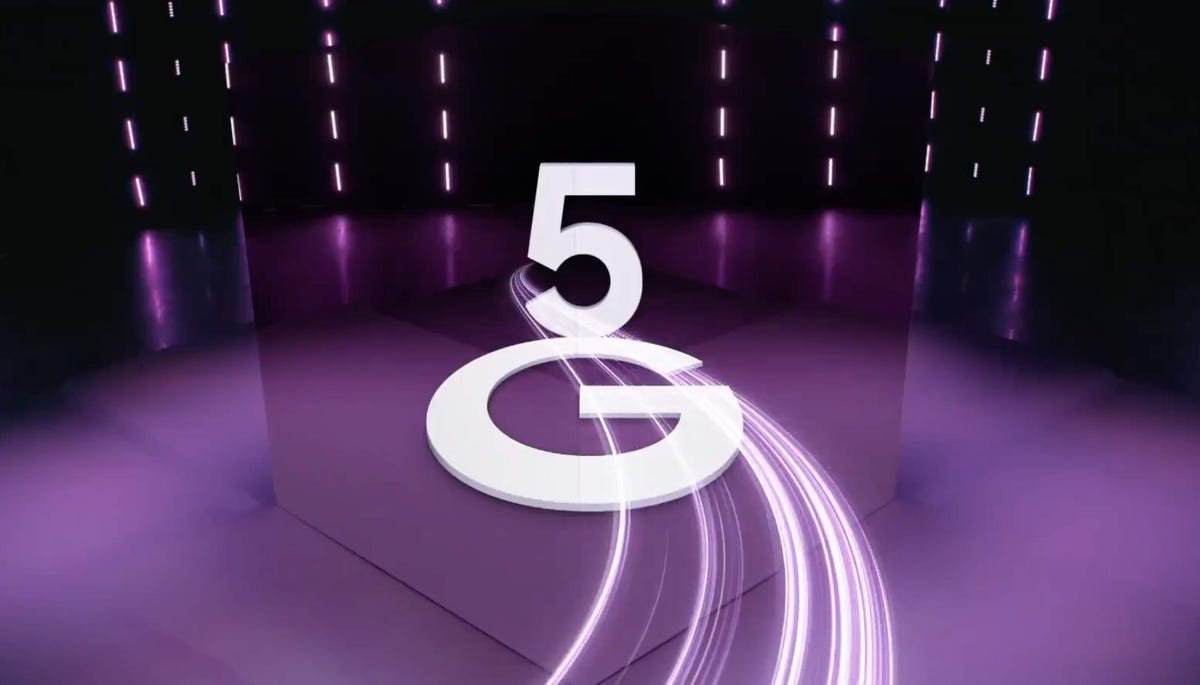

Know your area
Before we get to the plans, to get the best deal you need to make sure you have the coverage that you need. This makes it very hard for us to give a blanket recommendation of any one carrier. T-Mobile’s service in New York may be excellent, but if you’re in rural Iowa, Verizon is more reliable.
While your mileage may vary, the good news is that these networks are growing and improving all the time, particularly as the three major players race to blanket the US with 5G. It’s quite possible that a decade ago you left a network complaining about its sparse service, but now it’s beefed itself up because of that race to acquire customers.
If you know any friends or family in your area that already use the carrier you’re considering, ask about their experience. You could also go to a carrier’s store and see if they offer any free ways to try out the service before switching over, such as T-Mobile’s Network Pass. Verizon now offers a similar 30-day “Test Drive” program while the Cricket prepaid service just rolled out its own trial program that lets you sample parent AT&T’s network.
Know your deals and discounts
One other thing to keep in mind: discounts. All of the carriers offer additional discounts that you could be eligible for, depending on your employer, military status, student status or age.
First responders, military members, veterans, nurses and teachers can get discounts on every major carrier. Verizon has discounts for students, while T-Mobile’s Work perk could knock 15% off the monthly price of a Magenta Max plan, with AT&T offering a similar program for its Unlimited Elite and Unlimited Premium plans that it calls Signature. AT&T has also rolled out a promotion for teachers that offers 25% off its latest unlimited plans.
If you’re 55 or older, you may also be eligible for a discounted plan: T-Mobile offers discounted plans nationwide for as low as $55 a month for two lines, and Verizon and AT&T offer similar options — but only for Florida residents. Now onto the picks.
Our picks
Sarah Tew/CNET
T-Mobile has added a new cheaper unlimited plan for those who don’t need three or more lines. Called Base Essentials, this plan has unlimited talk, text and data including 5G. While the data is unlimited, only the first 20GB each month are at high speed — if you go over that threshold, your speeds will slow to 1.5Mbps for the remainder of your billing period.
While perks like free Netflix or the bundling of taxes and fees into the sticker price are not included, you do get unlimited hotspot at “3G speeds,” a free year of Paramount Plus, and unlimited talk, text and 2G data in Mexico and Canada.
Priced at $5 less per month for a single line than AT&T’s Value Plus plan, this could be a solid option for those looking for a single line without frills. The carrier also allows for multiple lines of this plan, with two lines running $80 a month (if you need three or more you may want to look at one of T-Mobile’s other plans which could be cheaper thanks to various promotions the carrier regularly runs).
T-Mobile keeps this plan surprisingly hidden, but you can find it by heading to the “Plans” section of its website and clicking “See lowest-priced data cell phone plans.”
James Martin/CNET
If you only need one line, AT&T’s new Value Plus plan could be the way to go. You get unlimited talk, text and data and 5G access. There are no perks like a free streaming service subscription or hotspot data and you will need to stick to one line.
But if all you need is a simple unlimited plan from your phone, this is $10 less than T-Mobile’s Essentials pricing, $15 cheaper than AT&T’s Unlimited Starter (with this plan including 3GB of hotspot data) not to mention $15 cheaper than Verizon’s Welcome Unlimited and $20 cheaper than Verizon’s 5G Start.
Sarah Tew/CNET
Those looking to save the most on unlimited service from the major carriers may be best with T-Mobile’s Essentials. Unlimited talk, text and data are included for all of the carrier’s base unlimited plans. In this price-focused comparison, T-Mobile’s option comes in at $60 for a single line, $5 a month cheaper than AT&T’s Unlimited Starter and $10 less than Verizon’s 5G Start.
In addition to being $5 less than AT&T’s option, T-Mobile’s Essentials includes unlimited mobile hotspot (albeit at slower “3G speeds”), giving you a little more flexibility. All three carriers offer 5G access with their base plans. We should note that Verizon’s 5G Start doesn’t support its fastest forms of 5G.
You can always reevaluate your options as the three major carriers roll out the latest updates to their respective 5G networks over the next couple of years.
The savings of T-Mobile’s plan also become more pronounced the more lines you add. Two lines of Essentials is $90 a month, while a similar offering from AT&T or Verizon runs $120 a month. Three lines will also run $90 at T-Mobile thanks to a promotion, compared to $135 monthly at AT&T or Verizon. The four-line option is $105 at T-Mobile, compared to $140 at the other carriers.
These prices do come with a couple of caveats: Unlike T-Mobile’s Magenta or Magenta Max plans, taxes and fees are not included in any of these prices, making the actual total a little higher. All the deals also require that you set up AutoPay and paperless billing.
Sarah Tew/CNET
Verizon’s answer to T-Mobile’s cheapest plans has arrived in the form of its Welcome Unlimited offering. There are no streaming perks like the Disney Bundle with this plan, no hotspot data, no discounts for device upgrades and you can’t hop on Verizon’s fastest 5G networks, which it calls Ultra Wideband. But you do get Verizon’s network for $120 a month for four lines, assuming you have automatic payments set up.
Compared with the competition, the Verizon plan is still $15 a month pricier than T-Mobile’s Essentials plan, but it’s $20 a month cheaper than AT&T’s most affordable Unlimited Starter plan and Verizon’s own 5G Start. Those looking to save even more can combine the Welcome plan with Verizon’s other discounts for teachers, nurses, military and first responders.
Sarah Tew/CNET
If you’re looking for freebies with your wireless service, Verizon has one of the most aggressive bundles out there with its Play More plan ($80 a month for one line, $45 a month if you have four lines).
Verizon’s Play More plan includes unlimited talk, text and data and 25GB of higher-speed 5G and 4G LTE hotspot data. Among the perks are a free subscription to the Disney bundle (Disney Plus, ESPN Plus and Hulu) and either Apple Arcade or Google Play Pass.
All told, the perks quickly add up if you use any of these services. The Disney bundle normally runs $14 a month, and Apple Arcade and Google Play Pass each run $5.
That’s potentially $19 a month in services. Verizon offers these benefits as part of its Play More and Get More plans, but for most people, the Play More choice is the best fit. Get More runs an extra $10 a month ($90 a month for a single line, $220 a month for four lines) and adds an extra 25GB of high-speed hotspot data, 50% off a connected device (like a monthly plan for tablet or smartwatch) and 600GB of Verizon’s Cloud Storage. Get More also includes a subscription to Apple Music, normally $10 a month.
Something to note: These perks are often limited to one per account, so only one line on a family plan would qualify to open a Disney Plus account and get it covered by the carrier.
Verizon also lets you mix and match plans when you have multiple lines.
If you have four people on your family plan, only one needs to have Play More to get the perks for the whole family. The rest can be on the cheaper 5G Start, which would make four lines $140 a month — as opposed to $180 a month if all four lines have Play More.
You can also combine these plans with Verizon’s other discounts for teachers, nurses, military and first responders to save a bit more.
Lastly, Verizon has a “One Unlimited for iPhone” plan geared towards Apple fans that includes the Apple One bundle (Apple Music, Apple TV Plus, Apple Arcade and iCloud storage). The pricing on that plan ($90 per month for one line, $200 a month for four lines) is higher than Play More, however, and the One plan lacks the ability to put other lines onto cheaper plans. Combining those two factors makes this option a worse deal than the Play More plan.
Angela Lang/CNET
T-Mobile is the runner-up for perks. Among the benefits are unlimited international data (albeit at slow “2G speeds”) when traveling in over 210 countries, an hour of in-flight Wi-Fi on a number of airlines, T-Mobile Tuesdays weekly giveaways and the bundling of Netflix’s Basic plan (which is $10 a month and limited to watching on one screen at a time). It also now offers six free months of Apple TV Plus, a free year of Paramount Plus’ $5-a-month Essentials plan and a free year of TelevisaUnivison’s ViX Plus.
Its pricier Magenta Max plan ($85 a month for one line, $170 a month for four lines) upgrades the Netflix subscription to the more popular $15.49-a-month Standard plan (which allows for 1080p HD streaming on up to two screens at once), gives you 40GB of hotspot data, adds 5GB of high-speed international data and gives you unlimited Wi-Fi on a host of flights including those from American, Alaska Airlines, Delta and United. You also get a full subscription to Apple TV Plus and a free year of Paramount Plus Essentials and ViX Plus.
Unlike its Essentials plans discussed earlier, T-Mobile also includes taxes and fees with the pricing of its Magenta and Magenta Max plans.
More about unlimited data plans and perks
AT&T’s unlimited plans no longer have much in the way of perks. The carrier used to offer a free subscription to HBO Max with its top Unlimited Elite offering ($85 for one line, $50 a month if you have four lines), but it got rid of the option in early June.
It is also worth reiterating that carrier perks — like Verizon and the Disney bundle or T-Mobile’s offering of Netflix, Paramount Plus, ViX Plus and Apple TV Plus — are often limited to one subscription per account, not one for each line you have.
Unlimited data plans FAQs
Why get unlimited?
If you’re on T-Mobile, all of your plans are unlimited, and Verizon no longer lets new users sign up for a shared data plan. Only AT&T still offers some tiered data plans.
Although everyone’s wireless needs are different, for most we think unlimited plans make the most sense, especially when it comes to choosing a new plan.
AT&T’s option isn’t great. It has a 4GB per line plan that runs $50 a month for one line ($160 for four lines). Each line here gets 4GB of data, but if you go over that threshold in a month you’re paying $10 for every 2GB. AT&T’s plan also does not include access to its 5G networks.
The company’s basic unlimited plan, called Unlimited Starter, is $65 a month for one line or $140 for four lines.
If you have one or two lines and don’t use a lot of data, you may be fine with one of these plans, though if you have just one line we’d recommend switching over to AT&T’s $50 per month Value Plus option we mentioned above or T-Mobile’s Base Essentials. Two lines of that T-Mobile plan runs $80 a month, which is $10 cheaper than two lines of AT&T’s 4GB plan and comes without the worry of navigating how much data you use.
For most people, we really do believe unlimited is the best choice when choosing a new plan.
Is unlimited data really unlimited?
It is, but the speeds you get may vary depending on your plan and how much data you use in a given month. Whereas in the past carriers would slow down or “throttle” your speeds if you pass a certain limit (usually over 22GB of data within a month) for the remainder of your billing cycle, today all three major providers say they’ll only do that in special cases.
To have your data slowed on most of the plans mentioned above, you will need to have:
1. Used over 50GB of data in a month.
2. Be in an area that is experiencing “congestion,” “heavy traffic” or if the network is “busy.” Examples of this could be at a sporting event or concert where there are tens of thousands of people in the same area uploading and sharing photos and videos.
All carriers say that in these cases your data should only be slowed “temporarily.” If you have an older unlimited plan, however, your threshold for when your data slows and how long it lasts may be different.
Is hotspot included?
A hotspot, or the ability to share your phone’s connection with other devices, will vary based on the plan you have. Some, like AT&T’s Value Plus and Verizon’s 5G Start, don’t include it at all while others — such as AT&T’s Unlimited Starter and T-Mobile’s Essentials and Magenta — offer limited amounts of high-speed access before capping your hotspot performance to “3G” or “2G” speeds.
In short, if hotspot access is important for you, check out a pricier unlimited plan such as T-Mobile’s Magenta Max (40GB of high-speed data); Verizon’s Play, Do, One or Get More (25GB of high-speed data on Play, Do or One; 50GB on Get More); or AT&T’s Unlimited Extra (15GB of high-speed data) or Unlimited Premium (50GB of high-speed data) options.
We’ll keep updating this article as new unlimited plans and better deals emerge. In the meantime, if you know of a better wireless plan deal or have your own favorites, message me on Twitter @eliblumenthal.
Read more: Best Streaming Service Deals


